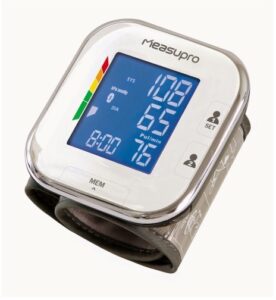Heart Conditions – CardioVascular Group – Sept.4, 2021
High blood pressure is a serious condition which can lead to heart disease and a stroke. Did you know there are several ways to improve your blood pressure without medication? We consider medication a last resort.
The first option? Rethink your lifestyle. We don’t recommend you attempt to make these changes overnight; that’s not fair to you. Instead, try one at a time. Then add another. And another. That’s the smart path to lowering your blood pressure without medication.

Living a healthy lifestyle is crucial to improving blood pressure. CardioVascular Group cares about your health and suggests these lifestyle tips to lower your blood pressure without medication.
Exercise
Any form of aerobic exercise or moderate-intensity activity is proven to reduce blood pressure. As you start to exercise regularly, the pressure in your arteries decreases and your heart doesn’t have to work as hard. According to Dr. Randall Zusman, a cardiologist at Harvard Health, you should get 150-minutes of exercise per week. That means walking 30 minutes a day, five days a week, can reduce your blood pressure. So take the stairs at work. And park in the back of the parking lot.
Change Your Diet
We all know adding fruits and vegetables to our diet is the healthy thing to do…but why? It reduces inflammation in the cardiovascular system, making blood flow more efficient. Eating processed and refined foods (i.e. junk food) damages the blood vessel walls, leading to high blood pressure and other severe conditions. Here are some tips that are essential in blood pressure health:
1. Increase potassium in diet – Potassium regulates blood pressure in the body. Foods high in potassium include:
Avocado
Banana
Nuts
Spinach
2. Decrease sodium (salt) intake – Where salt goes, water always follows. When you consume too much salt, your body retains water that could cause serious cardiovascular issues. A weakened heart causes fluid retention. To avoid this vicious cycle, reduce the amount of salt you consume by choosing low-sodium alternatives and avoiding processed foods.
3. Avoid sugar – Sugary foods cause weight gain, forcing your heart to work harder. Over time, this leads to high blood pressure. Ready to do something about it? Start incorporating whole foods in your diet. Also, avoid sodas. Both are great ways to start reducing sugar consumption.
4. Eat less dairy – According to Mark Hyman, MD, dairy contains unhealthy saturated fats and may be linked to heart disease – More: Dairy: 6 Reasons You Should Avoid It At All Costs…
Many healthcare professionals believe dairy products can be harmful to your health and suggest substituting almond or soy milk.
5. Relieve Stress – Although the effects of chronic stress on blood pressure are still unknown, studies show that reducing stress levels, paired with adequate exercise, can lower blood pressure. When you are stressed, the endocrine system produces an excess amount of hormones that trigger a fight-or-flight mode. The blood vessels constrict and force the heart to work overtime. Here are a few coping mechanisms you can try to reduce your stress levels:
6. Rest and relaxation – Take time each day to relax. The intention here is to get out of your head and into the now.
7. Meditation – Evidence shows that meditation may activate the parasympathetic nervous system, also known as the “Rest and Digest” system. Meditation relaxes the body by slowing the heart rate and lowering blood pressure.
8. Analyze your schedule – Avoid overworking and engaging in activities that cause stress—practice boundaries and learn how to say “No!”
9. Get plenty of sleep – Not getting enough sleep can throw your hormones off-balance and cause you to go into a frenzy quicker than usual. Make sure to get at least seven hours of sleep every night.
Stop Smoking
Smoking hardens the inner lining of the blood vessels and makes it harder for them to relax. In turn, the workload on the heart becomes more demanding, and blood pressure increases. Smoking is bad for your health in general and should be avoided at all costs.
Hi Greg,
Perfect article for me and right on time. After seeing my new doctor, I am working on getting my BP lower – I have to keep a log every day and make sure I don’t forget to bring it with me for monthly appointments. I am also going to Physical Therapee once a week. I think he must have been in the military (:-) He refuses to okay a request for a “handicap sign” for my car. He says “not a good idea as long as I can walk I should walk as far and as long as possible.
Thanks and keep me in your prayers,
Tanya